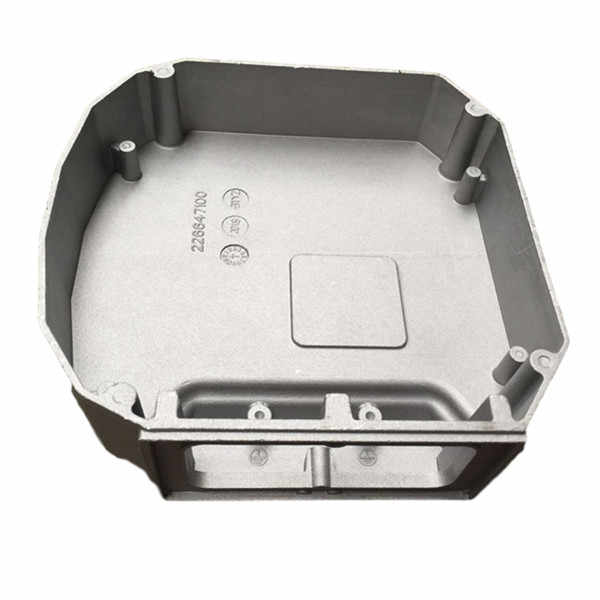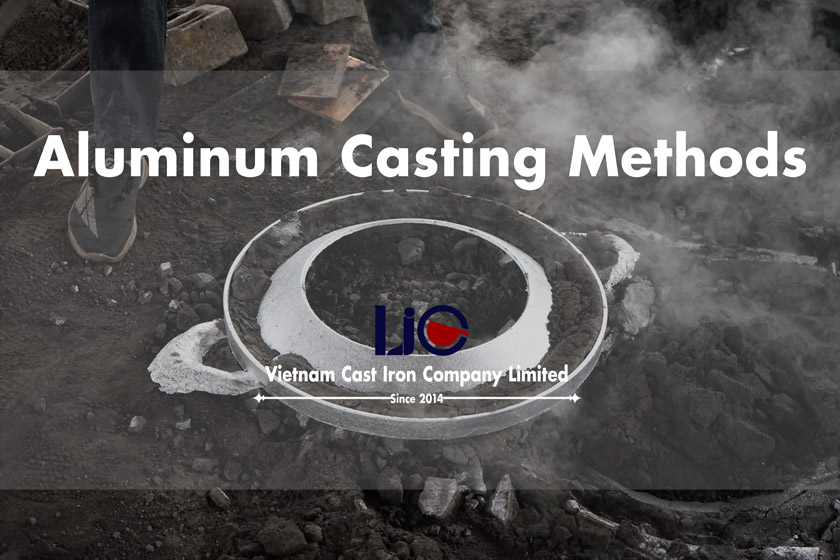4 Simple Techniques For Alcast Company
4 Simple Techniques For Alcast Company
Blog Article
About Alcast Company
Table of ContentsThe 5-Second Trick For Alcast Company9 Simple Techniques For Alcast CompanyAlcast Company Can Be Fun For AnyoneSome Of Alcast CompanyThe 15-Second Trick For Alcast CompanyThe Definitive Guide for Alcast Company
The subtle distinction depends on the chemical material. Chemical Comparison of Cast Light weight aluminum Alloys Silicon promotes castability by decreasing the alloy's melting temperature level and improving fluidness during casting. It plays an important function in permitting elaborate molds to be loaded properly. Additionally, silicon adds to the alloy's stamina and use resistance, making it beneficial in applications where longevity is important, such as automobile parts and engine components.It likewise improves the machinability of the alloy, making it less complicated to refine into finished products. This way, iron adds to the general workability of aluminum alloys. Copper boosts electrical conductivity, making it useful in electrical applications. It also boosts deterioration resistance and contributes to the alloy's general stamina.
Manganese adds to the stamina of light weight aluminum alloys and boosts workability (Aluminum Castings). It is commonly used in wrought aluminum items like sheets, extrusions, and profiles. The existence of manganese help in the alloy's formability and resistance to breaking during manufacture procedures. Magnesium is a lightweight aspect that gives toughness and influence resistance to light weight aluminum alloys.
A Biased View of Alcast Company
Zinc improves the castability of aluminum alloys and helps manage the solidification procedure throughout casting. It boosts the alloy's stamina and solidity.

The main thermal conductivity, tensile toughness, yield stamina, and elongation differ. Among the above alloys, A356 has the highest possible thermal conductivity, and A380 and ADC12 have the cheapest.
The Greatest Guide To Alcast Company

In accuracy spreading, 6063 is appropriate for applications where complex geometries and high-quality surface coatings are critical. Instances consist of telecommunication rooms, where the alloy's superior formability enables for smooth and aesthetically pleasing styles while keeping architectural integrity. In a similar way, in the Lighting Solutions market, precision-cast 6063 elements produce stylish and reliable lights fixtures that call for intricate shapes and great thermal efficiency.
The A360 exhibits exceptional prolongation, making it suitable for complicated and thin-walled parts. In precision spreading applications, A360 is appropriate for industries such as Customer Electronics, Telecommunication, and Power Tools.
An Unbiased View of Alcast Company
Its one-of-a-kind properties make A360 a useful option for precision casting in these markets, boosting item durability and high quality. Light weight aluminum alloy 380, or A380, is an extensively utilized spreading alloy with a number of distinct features. It provides superb castability, making it an ideal option for precision casting. A380 displays great fluidity when molten, guaranteeing complex and detailed mold and mildews are accurately replicated.
In precision spreading, aluminum 413 beams in the Customer Electronics and Power Tools markets. It's frequently made use of to craft intricate parts like smart device housings, cam bodies, and power device housings. Its precision is exceptional, with tight resistances approximately 0.01 mm, making certain perfect product setting up. This alloy's remarkable deterioration resistance makes it an excellent choice for exterior applications, guaranteeing lasting, long lasting items in the mentioned sectors.
Alcast Company Can Be Fun For Anyone
When you have actually decided that the aluminum die casting procedure appropriates for your job, an important next step is selecting one of the most appropriate alloy. The aluminum alloy you select will significantly influence both the spreading process and the residential properties of the end product. Since of this, you have to make your decision very carefully and take an enlightened approach.
Identifying one of the most ideal aluminum alloy for your application will indicate evaluating a vast array of characteristics. These comparative alloy characteristics follow the North American Die Casting Association's standards, and we've divided them into 2 classifications. The first category addresses alloy qualities that affect web the production process. The second covers characteristics impacting the properties of the last item.
The 9-Minute Rule for Alcast Company
The alloy you choose for die spreading straight influences several facets of the casting procedure, like how very easy the alloy is to deal with and if it is vulnerable to casting problems. Hot splitting, also referred to as solidification fracturing, is a normal die spreading defect for light weight aluminum alloys that can lead to interior or surface-level rips or cracks.
Particular aluminum alloys are extra susceptible to hot cracking than others, and your choice needs to consider this. Another typical flaw found in the die casting of light weight aluminum is pass away soldering, which is when the cast adheres to the die wall surfaces and makes ejection challenging. It can damage both the actors and the die, so you should search for alloys with high anti-soldering residential properties.
Rust resistance, which is already a noteworthy quality of light weight aluminum, can differ considerably from alloy to alloy and is a crucial particular to take into consideration depending upon the ecological problems your item will certainly be subjected to (aluminum casting company). Wear resistance is another residential property commonly sought in aluminum products and can distinguish some alloys
Report this page